Ramazzini Institute researchers protest: “Our independence is at risk”
- Details
 They fear the pesticide industry’s response to the Global Glyphosate Study triggered the firing of the Institute’s scientific director
They fear the pesticide industry’s response to the Global Glyphosate Study triggered the firing of the Institute’s scientific director
EU consumers could lose the battle for GMO-free organic food, SAFE warns
- Details
 SAFE regrets legislative steps to make "new GM" techniques free from mandatory requirements applicable to other GMOs and warns that this will mean the end of organic food as we know it
SAFE regrets legislative steps to make "new GM" techniques free from mandatory requirements applicable to other GMOs and warns that this will mean the end of organic food as we know it
Coming to your neighbourhood soon? Seriously risky outdoor gene editing
- Details
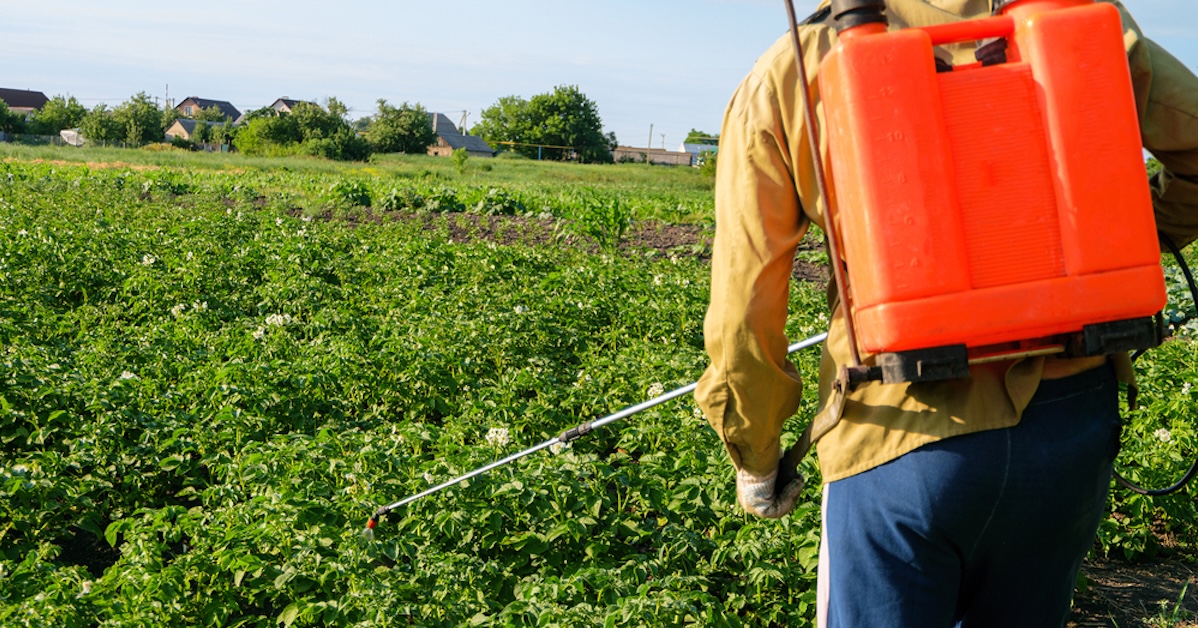 Some scientists who argue for deregulation deny outdoor gene editing is possible. But patents and the scientific literature tell a very different story. Report: Claire Robinson
Some scientists who argue for deregulation deny outdoor gene editing is possible. But patents and the scientific literature tell a very different story. Report: Claire Robinson
The corporate capture of MAHA: How the chemical lobby is stealing our health again
- Details
 By Lee Evslin
By Lee Evslin
Enshittification of our food and farms: Patents and new GMOs
- Details
 Bayer going after Pfizer for patent infringement is a forerunner for widespread abuse of intellectual property claims in food and farming if the planned GMO deregulation goes ahead. Report: Claire Robinson
Bayer going after Pfizer for patent infringement is a forerunner for widespread abuse of intellectual property claims in food and farming if the planned GMO deregulation goes ahead. Report: Claire Robinson
European Patent Office turns its back on EU decisions
- Details
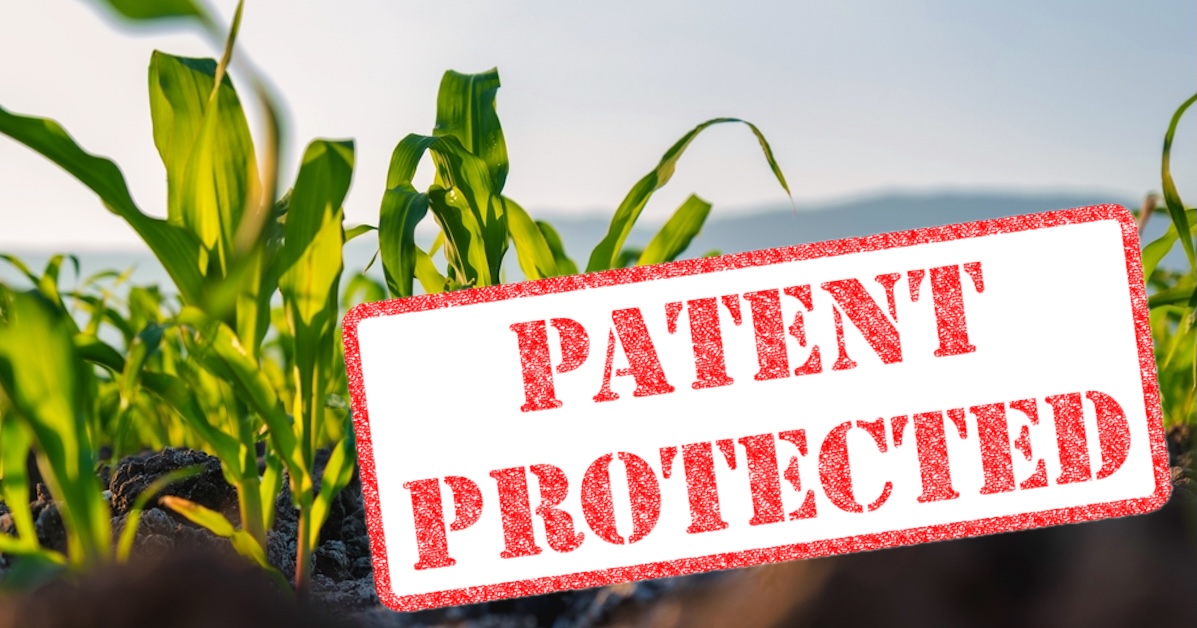 EPO practice of allowing patents on non-GM plants is becoming increasingly brazen, says No Patents on Seeds
EPO practice of allowing patents on non-GM plants is becoming increasingly brazen, says No Patents on Seeds
Scientist, farmer, and campaigner all call time on glyphosate
- Details
 Pre-harvest desiccation and non-farming uses of glyphosate should be banned, conference speakers agree. Report: Claire Robinson
Pre-harvest desiccation and non-farming uses of glyphosate should be banned, conference speakers agree. Report: Claire Robinson
Now the European Parliament must save GM labelling – GMO-free industry association
- Details
 "Germany did not agree to the ill-conceived and economically and consumer-damaging abolition of mandatory GMO labelling in the EU" – VLOG
"Germany did not agree to the ill-conceived and economically and consumer-damaging abolition of mandatory GMO labelling in the EU" – VLOG
Holiday revelation: Wild American chestnuts thriving on biologist’s land in Maine
- Details
 Film gives the lie to claims by some researchers that genetically engineered trees are the only path to restoration of the American chestnut
Film gives the lie to claims by some researchers that genetically engineered trees are the only path to restoration of the American chestnut
EU governments sign off on far-reaching GMO deregulation
- Details
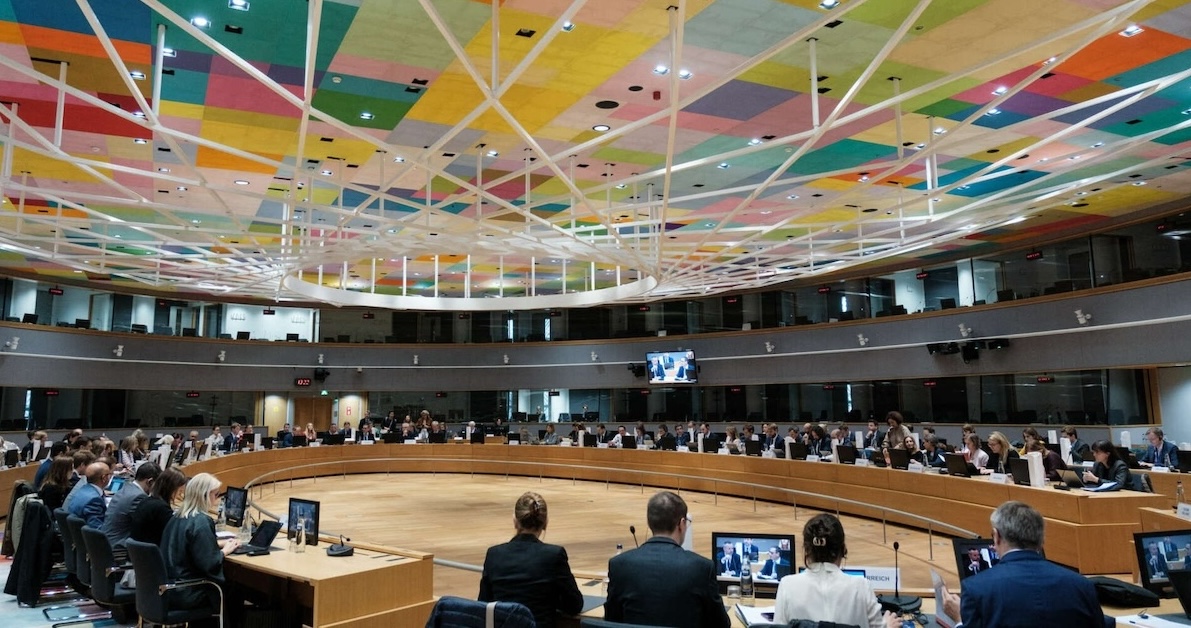 "Most EU governments want to allow untested and unlabelled GM plants to be released into the environment and onto our plates" – Save Our Seeds
"Most EU governments want to allow untested and unlabelled GM plants to be released into the environment and onto our plates" – Save Our Seeds
EU Member States approve the deregulation of GMOs obtained by new GM techniques
- Details
European Coordination Via Campesina (ECVC) denounces "strategic error for Europe’s food and seed sovereignty"
Gene editing disrupts multiple gene functions through large-scale epigenetic changes in a way that persists through successive cell generations
- Details
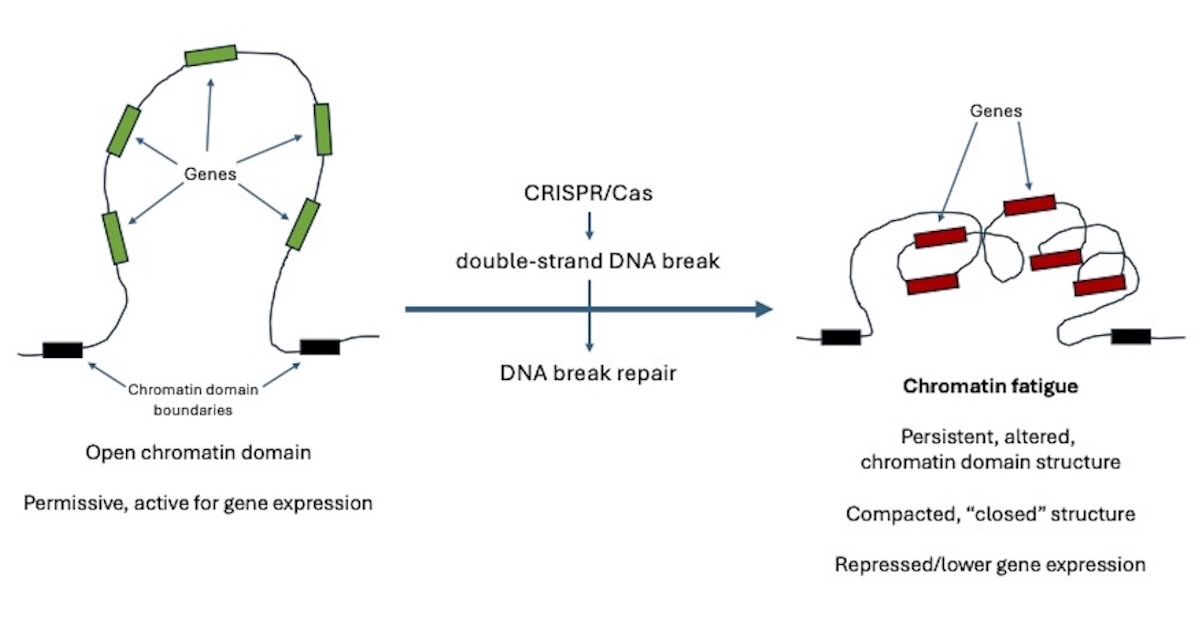 Study finds CRISPR/Cas gene editing causes “chromatin fatigue” – another surprise mechanism by which it can produce unwanted changes in gene function. Report: Claire Robinson and Prof Michael Antoniou
Study finds CRISPR/Cas gene editing causes “chromatin fatigue” – another surprise mechanism by which it can produce unwanted changes in gene function. Report: Claire Robinson and Prof Michael Antoniou
Faking it without making it: The de-extinction disinfo campaign manager’s history of hype
- Details
 How Colossal Biosciences’ CEO Ben Lamm keeps the hype cycle going. By Jonathan Matthews
How Colossal Biosciences’ CEO Ben Lamm keeps the hype cycle going. By Jonathan Matthews
Journal finally retracts Roundup cancer study reliant on Monsanto research and ghostwriting
- Details
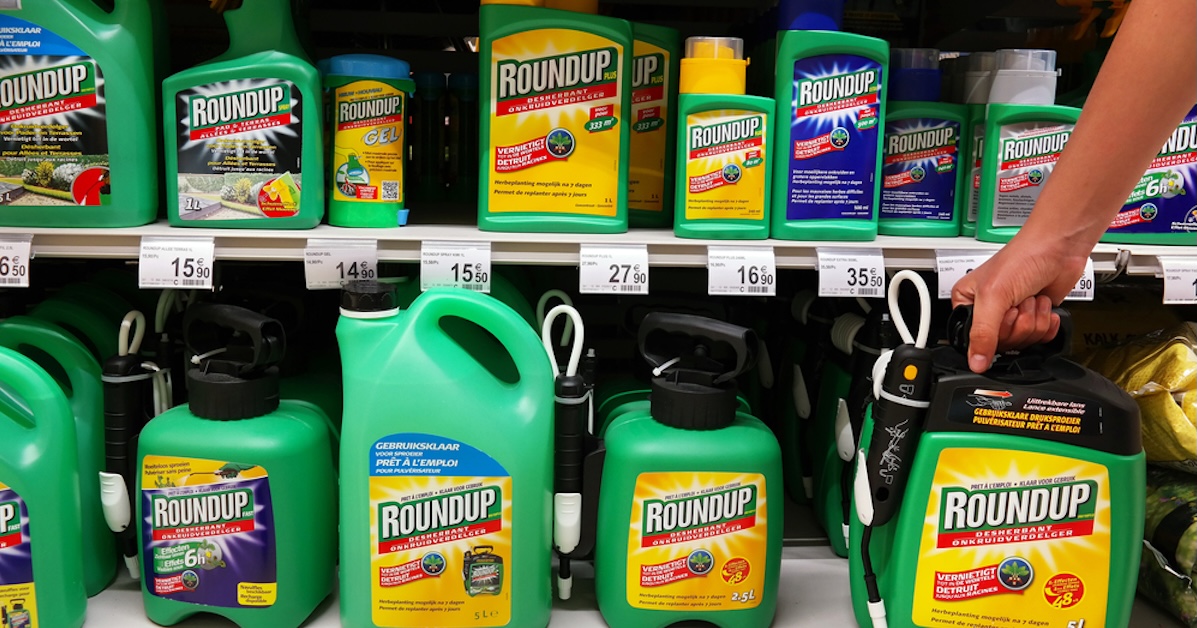 “Now that much of the research finding glyphosate poses no cancer risk has been undermined, it is especially outrageous that the Trump administration is seeking to bolster Bayer’s case,” said one campaigner. By Jessica Corbett
“Now that much of the research finding glyphosate poses no cancer risk has been undermined, it is especially outrageous that the Trump administration is seeking to bolster Bayer’s case,” said one campaigner. By Jessica Corbett
Comments on provisional new GMOs legislation that abandons risk assessment, labelling and traceability
- Details
ENGA (the European Non-GMO Industry Association) and Friends of the Earth Europe denounced the deal
Bad deal reached on new GMO deregulation file in EU trilogue
- Details
No risk assessment, traceability or labelling for 94% of new GMOs; rapporteur betrays intent of Parliament
Silicon Valley’s race to produce genetically engineered humans
- Details
 By Katie Hasson, Biopolitical Times
By Katie Hasson, Biopolitical Times
IUCN votes on gene editing in conservation: Biotech lobbyists ‘win’, nature loses
- Details
 Report by Beyond GM
Report by Beyond GM
US tech billionaire pumps $60 million into British firm to develop GM crops and AI
- Details
 Larry Ellison is also a major funder of the Tony Blair Institute, which cheerleads for GM and AI. Report: Claire Robinson and Jonathan Matthews
Larry Ellison is also a major funder of the Tony Blair Institute, which cheerleads for GM and AI. Report: Claire Robinson and Jonathan Matthews
EU deregulation of genetic engineering: Parliament's mandate at risk of being disregarded
- Details
 Green MEP Martin Häusling warns that the Parliament's rapporteur is going rogue in her support for deregulation
Green MEP Martin Häusling warns that the Parliament's rapporteur is going rogue in her support for deregulation
The limits and dangers of genetic engineering in agriculture
- Details
 Dr Million Belay interviews molecular geneticist Prof Michael Antoniou
Dr Million Belay interviews molecular geneticist Prof Michael Antoniou
Oxitec withdraws application to release its GM mosquitoes in Australia
- Details
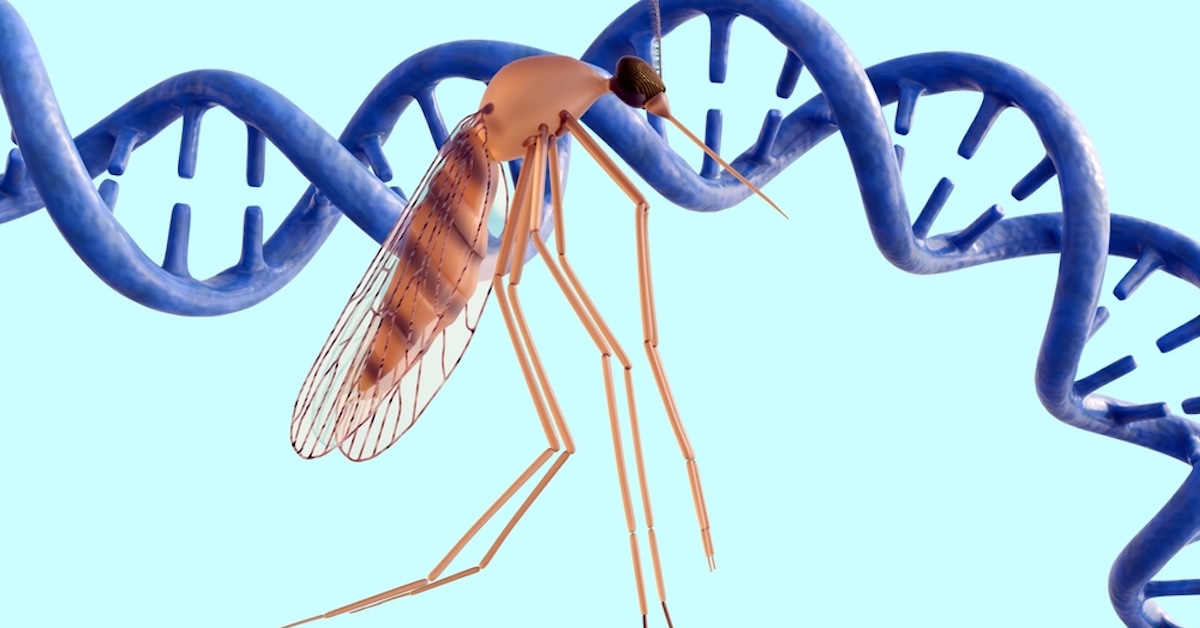 GM mozzies plan had attracted strong opposition from the public and scientists
GM mozzies plan had attracted strong opposition from the public and scientists
Patent on maize with native traits upheld
- Details
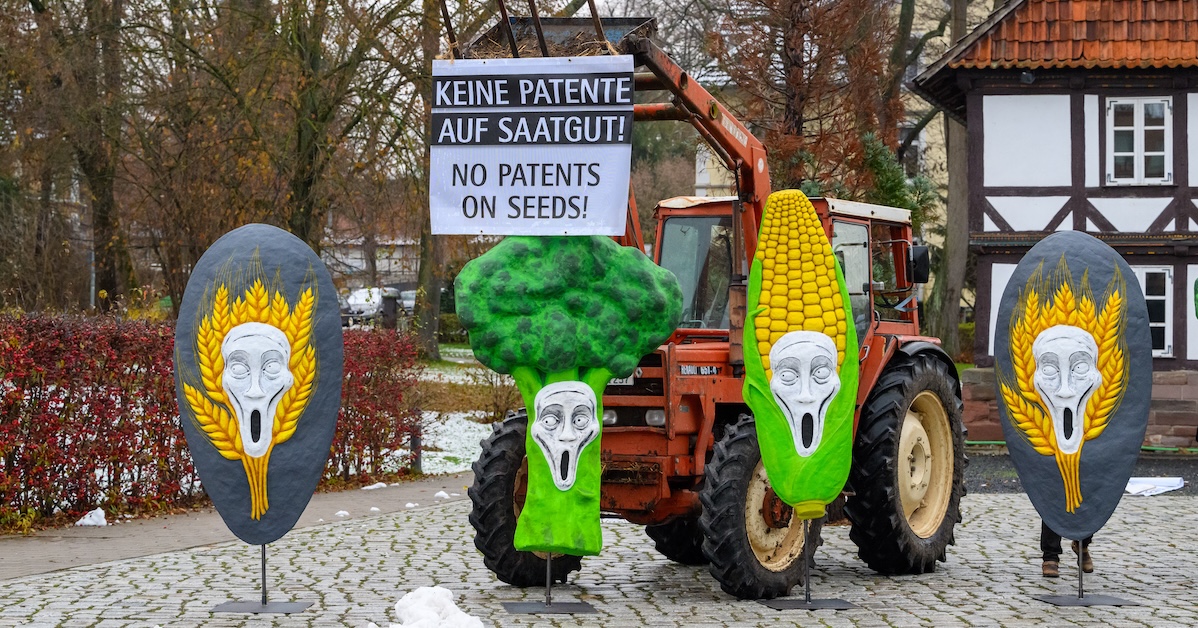 Precedent case shows new rule does not solve problems
Precedent case shows new rule does not solve problems
Poll: 82% of Danes oppose GMO deregulation, at odds with government position
- Details
Poll comes as EU institutions are in the final negotiation rounds to determine if new GMO products will be exempt from labelling and traceability requirements
Victory! Center for Food Safety secures win for the public’s right to know in GMO labelling lawsuit
- Details
 Court says USDA's labelling exemption for “highly refined” or ultra-processed GMO foods — such as corn and soy oils — is unlawful
Court says USDA's labelling exemption for “highly refined” or ultra-processed GMO foods — such as corn and soy oils — is unlawful